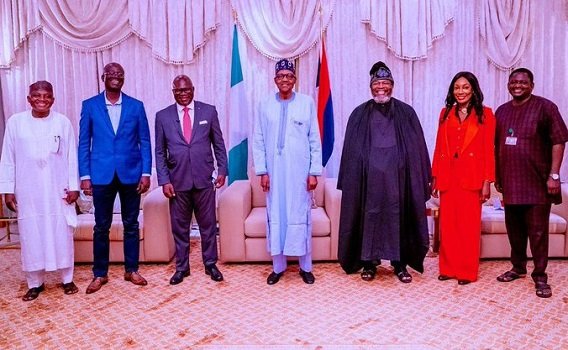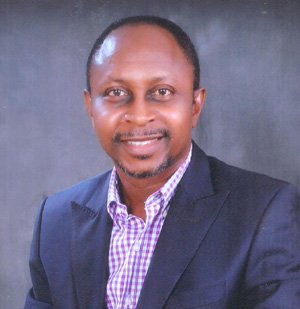President Muhammadu Buhari has once more confirmed his status as Commander-in-Chief of PR disasters.
In a recent interview with Arise TV, an event obviously put together by his spin doctors to help douse the fire ignited by his administration’s tit-for-tat with Twitter, the president talked himself into further trouble.

Among many other gaffes, he described IPOB as “a dot in a circle.” It was apparently his way of illustrating how insignificant he thinks the group is.
Many viewers took offence at the President’s figure of speech. They said it was insensitive, condescending, and yet another evidence of the president’s poor grasp of metaphor and the gravity of challenges facing Nigeria.
Even before the interview ended, many took to social media to interrogate and unravel the multiple significances of “a dot in a circle.” Some said it was a veiled reference to the southeast region (home of IPOB) as a landlocked zone with poor economic prospects if it secedes from Nigeria – as IPOB agitators are believed to be calling for.
Others said a dot in a circle is its epicenter, so the president unwittingly underscored the importance of the southeast region as Nigeria’s entrepreneurial and commercial engine. Yet others said they were proudly part of Buhari’s dot in a circle, in apparent show of defiance.
In the same interview, the president said his solution to the infamous farmer-herder crisis which has claimed so many lives and given his government a bad name is to reclaim colonial cattle routes and get other ethnic groups to better understand that open grazing is a Fulani way of life! Talk about ancient solutions to modern problems. The roof over Nigeria is still shaking following that statement.
Observers believe this is definite proof that the president neither reads nor researches his challenges. Nor is he privy to enlightened advise as any president should. Otherwise, they say, he would have come across better solutions proferred by countless experts and used in other parts of the world, notably ranching.
That he insists on asking other ethnic, economic and interest groups in the country to endlessly accommodate the anachronistic whims of people of his own ethnic group (even if by his own admission they come from Mauritania or Niger Republic with assault rifles) is a matter for another day.
Only days earlier, the president’s threat to “deal ruthlessly (with IPOB) in a language they understand” had raised a storm. Many accused him of a genocidal agenda against a section of the country where he is very unpopular.
Twitter, the online micro blogging site, deleted the president’s tweet following the furore. In retaliation, the Nigerian government “suspended” Twitter operations in the country and threatened to bring all social media platforms under stricter control.
Throughout his tenure, the president has drawn the ire of critics after almost every interview or media appearance. Once, he was at the receiving end from feminists and feminist sympathizers for insinuating that the place of women is in “the other room.” Or “za oza room” according to those who want to poke fun at the president’s heavy regional accent.
On another occasion, he was taken to task for poor mathematical and statesmanship skills when he said he could not be expected to give major appointments to people from a region that gave him only 5% of votes when some other regions gave him the remaining 97%.
The list of gaffes is endless and probably helps explain why, for long, the president’s handlers chose to either issue press releases or speak on his behalf, perhaps more often than they should.
But there was no rest for the president even under the cover of silence. His critics said he was distant from the people he led and should address the nation more often especially in the face of mounting security and other challenges. Now we know better.
With both the principal and his spokespersons looking in such bad shape, it remains to be seen how they would navigate the remaining two years of their tenure.
The greatest threat to the Buhari Administration’s reputation, governance capacity and legacy is not Boko Haram, IPOB, criminal herdsmen, bandits, kidnappers, the opposition PDP or even Twitter. It is, sadly, the president himself. Or more accurately, his lack of soft skills.

This president has no room for empathy, fence-mending, bridge-building or citizen motivation in his leadership toolbox.
Yet there are those who say that no amount of diplomatic or public speaking skills can help a president whose beliefs, attitudes, sentiments and thought processes are firmly rooted in 19th Century prejudices. They say his troubling words only betray a more troubling state of mind. And there’s no camouflage to disguise that, even for an Army General.

Victor Anazonwu is an author and member of the Renaissance Online Magazine Editorial Board. He writes from Lagos.
![]()



